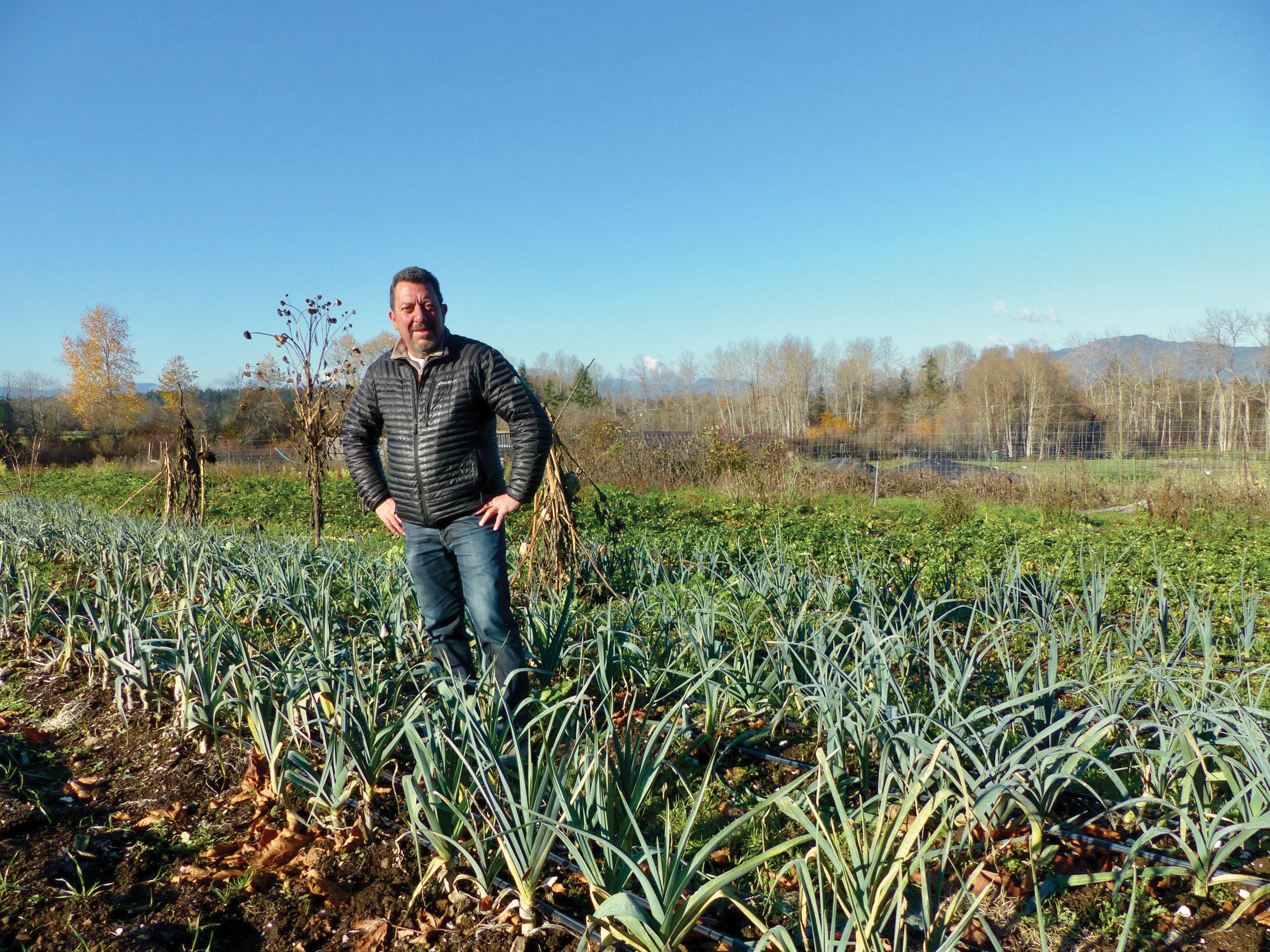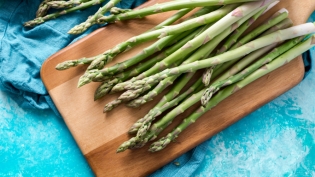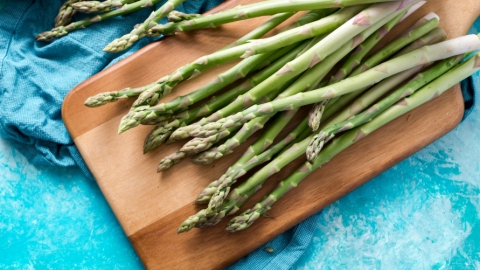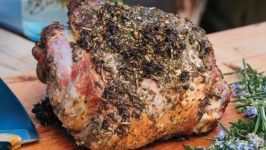Farm Fresh
Time For a Change
Long-time Victoria restaurateur Mike Murphy swapped his signature proprietor’s stool at the end of the bar for a tractor seat nine years ago. And it changed more than just the view.
“It gave me a new lease on the business, and it allowed me to still stay interested enough to be focused on the restaurants,” says the 60-year-old Murphy of buying the land that became 10 Acres Farm in North Saanich, about a 30-minute drive North of Victoria.
On this day, from a chair at the head of his dining room table on a bright winter morning, Murphy has a view out the picture-window over most of his land. In a voice like tumbling gravel, he talks about change, finding purpose and the trial and error of learning to be a farmer. One of Vancouver Island’s best-known hospitality industry figures, Murphy owns a trio of restaurants in a single block opposite The Fairmont Empress in downtown Victoria: 10 Acres Kitchen, Bistro and Commons.
In the business since he was a teenager, he had opened and closed places, renovated and expanded. He was known for his seat at the end the bar in his places, sipping wine while he ran his dining rooms from a familiar perch. As the Victoria Times Colonist observed in a 2014 story: “It would be hard to imagine Mike Murphy anywhere else.”
But that seat got a little too comfortable: “I used to joke I’d see the sun coming up every day, either because I got up earlier or stayed up late.”
The Birth of 10 Acres Farm
Murphy loved the business but was tiring of the daily grind of running the restaurants and managing staff. Ten years ago, he almost packed it in.
And then he bought the farm.
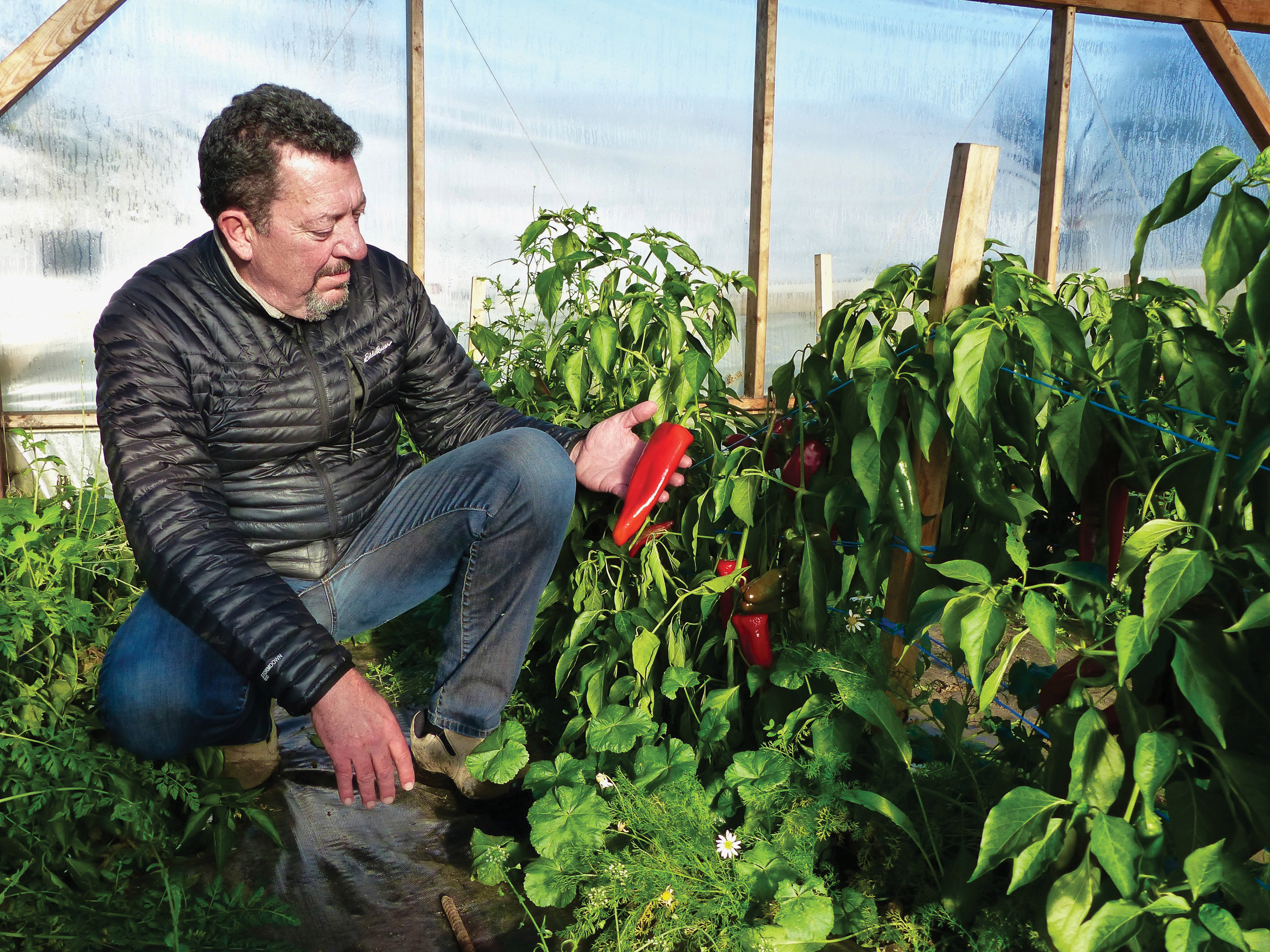
This wasn’t “bought the farm” as in “the end”. It meant renewal–even rebirth–when Murphy purchased the compact former horse farm with its 2,000-square-foot, circa-1940s house.
It’s no surprise that Murphy, a man clearly not fond of having his patience tried, initially made the land deal because he was irritated at being told what to do. Or as he puts it: “I was just in a fit of pique,” about new Capital Regional District regulations around packaging and picking up compost from his restaurants. So he decided to buy his own farm and do his own composting.
“I remember at the time people saying, ‘Are you crazy? It’s hard enough to get restaurant [staff]. How are you going to find people to run a farm?’” As one wag observed, Murphy was choosing to go from “the hardest business into the second hardest.”
Indeed, there were challenges with both staff and learning. “Composting horror stories,” punctuated most of the first year, says Murphy. His first try with using hay bales to generate heat failed so spectacularly, “eight months later we had to don hazmat suits. It was just unbelievable. That didn’t work.”
Now, he has a system that does.
An Ambitious Operation
Murphy acknowledges he was too ambitious. Growing food and raising animals was the easy part. Harvesting was the downside—like, how to process Pekin ducks. And he couldn’t keep up with the demand for chickens in his restaurants, which typically serve upwards of 60 rotisserie birds a day. And fresh field greens sound great on a menu, but not when you need to find workers to harvest them pre-dawn. The beehives failed.
The ducks and chickens are now gone. He has a crack farm manager, Evelyn Turner, to run the operation, and sources fowl and pork from nearby Berryman Farms.
Heritage turkeys are still raised for holiday meals. The small-stature Ossabaw Island hogs fattened on gruel made from cooked restaurant kitchen food scraps will be used for “outstanding charcuterie.” There’s a plan to dig cellars to hang hams for two years, along with salumi, sausage, pepperoni and other products.
What's Next
Murphy has big plans: for agritourism; for a vegetable show garden; for tours from downtown to bring cruise ship passengers to 10 Acres. There will be no accommodation or a permanent restaurant on-site, although he does fancy the idea of special-event long-table dining overlooking the fields.
The farm has helped him learn to let go of some things around running his business, although he admits it’s not easy for him. Simon Gillett, a “top-notch” general manager, now oversees the operation with executive chef Marcelo Najarro helming the kitchens of all three restaurants, directing six sous chefs and a baker. Murphy said the business runs smoothly as a team effort.
He still keeps an apartment in the city but spends most nights at the farm. He also goes to work later in the morning now and comes home before dinner service starts. For one thing, he has to walk his tiny chihuahua, Fig, which he brought back as a pup from La Manzanilla, Mexico.
Like Lucy, Murphy’s beloved late basset hound, Fig also spends his days alongside his master at work. But the farm is where they begin most days now. The big man with the gruff voice and the little dog walk past the greenhouse, past the asparagus crowns and the strawberries and the fava beans and the bounty from assorted fruit trees and vines. Fuego, a sleek orange tabby, tags along.
It’s a good life on the farm.


